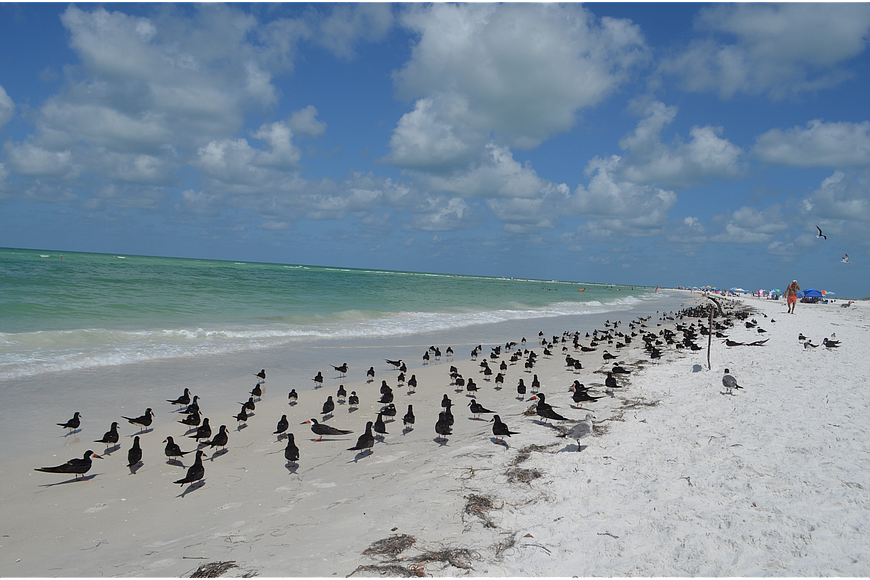- November 23, 2024
-
-
Loading

Loading

Those enjoying a stroll on the beach may want to keep an eye out for distressed birds.
Within the last week, Save Our Seabirds has seen an influx in the number of birds it has treated, specifically laughing gulls.
In the last few days alone, Save Our Seabirds hospital technician Julie Less said the organization has received around 25 seagulls that are in need of medical attention.
Save Our Seabirds volunteer Dave Thomas regularly does bird rescues where he needs nets or waders because he has to chase the birds. However, in these instances, Thomas said there has been no struggle.
“Oftentimes, the birds are sprawled out on the beach, with their heads down and they’re very weak,” Thomas said. “They almost look dead.”
Upon arriving at Save Our Seabirds, the birds, which are often lethargic and unable to feed themselves, need fluid therapy and a warm, quiet place to distress, Less said.
Of the birds the organization has received, around half have died in the first 24 hours. However, technicians are unsure of what is causing the illness.
Their first guess is always red tide, Less said, but after checking Mote Marine Laboratory and Aquarium’s website, she found there were no cases reported in the area.
Less said the illness seems like it is due to some sort of toxicity rather than a parasite or another illness that can be treated with a parasite. However, she can’t be sure of the cause.
“At this time, I can’t confirm what is actually causing it,” Less said.
Although Save Our Seabirds has received some gulls from Lido Beach, the majority have been found on Siesta Key Beach, between beach access 12 and 13 and a 300-yard stretch starting at Peppertree Drive moving south, Thomas said.
Because the instances are relatively contained, Less said the cases could be due to a bloom in the area, or another contaminant being introduced to those segments of the beach.
Thomas said because seagulls are scavengers, they could have accidentally ingested a new contaminate, or it is possible that someone is feeding poison to the gulls.
“Seagulls come in and people feed them because they come closer to you more than other birds,” Thomas said. “Poisoning them is an outside possibility, but it’s not outside the realm of possibility.”
If beachgoers see a bird sprawled out on its stomach, they are asked to call Save Our Seabirds at 941-388-3010. If possible, Thomas said it is best to stay with the bird until a rescuer arrives to ensure that it doesn’t move from the reported location.
Alternatively, Less said the symptoms of the illness makes it easier for an amateur rescuers to maneuver. If a citizen is willing, they can deliver the bird to Save Our Seabirds, located at 1708 Ken Thompson Parkway.
“What really kills the bird is that they don’t have the energy to keep drinking water and eating food,” Less said. “I would say if anybody sees them now, it’s worth it to bring them in because they probably aren’t feeding themselves.”